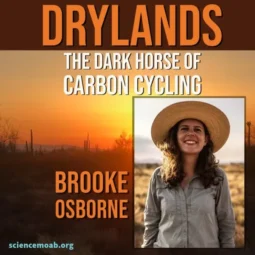
We hear an interview aired by our sister community radio station’s, Science MOAB. Ecologist Brooke Osborne talks about how dryland ecosystems – such as the grasslands east of Boulder – influence the whole planet. Dryands cover 40% of the earth; they support a third of the planet’s humans, and while their roots store lots of carbon, they’re vulnerable to climate change, overgrazing and aggressive land management.
In this episode, you’ll also hear about this weekend’s Colorado Environmental Film Festival in Golden.
Executive Producer: Beth Bennett
Show Producers: Beth Bennett and Shelley Schlender
Additional Contributions: Gracyn Custin
Listen to the show:
Podcast: Play in new window | Download (Duration: 26:48 — 36.8MB)
Subscribe: RSS



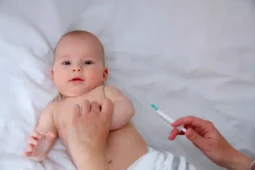 On today’s science show we hear from vaccine researchers Rochelle Walensky and Angela Ulrich, and physician/scientist Peyton Thompson, about the safety and efficacy of the hepatitis B vaccine. This is one of 6 that have been removed from the list of recommended childhood vaccines by the CDC. You’ll hear about the history of the vaccine regarding its complete safety and the huge reduction in disease burden following the adoption of the birth vaccine.
On today’s science show we hear from vaccine researchers Rochelle Walensky and Angela Ulrich, and physician/scientist Peyton Thompson, about the safety and efficacy of the hepatitis B vaccine. This is one of 6 that have been removed from the list of recommended childhood vaccines by the CDC. You’ll hear about the history of the vaccine regarding its complete safety and the huge reduction in disease burden following the adoption of the birth vaccine. In this week’s show Beth speaks with science writer, educator, and scientist
In this week’s show Beth speaks with science writer, educator, and scientist 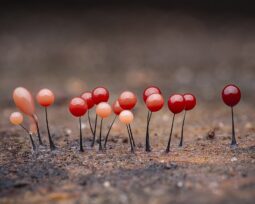 On today’s show, Beth speaks with award-winning science writer Jennifer Frazer about her
On today’s show, Beth speaks with award-winning science writer Jennifer Frazer about her  Five years ago, Beth spoke with
Five years ago, Beth spoke with  On this week’s How On Earth, Beth spoke with two cosmetic chemists, hosts of the podcast The Beauty Brains. We touched on some basic questions I have regarding some of the universe of products, such as shampoos, body lotions and sun screens. Beauty Brains Perry Romanowski and Valerie George, are both veteran cosmetic product developers who have worked on some of the most popular beauty products in the world. They’ve written dozens of science articles and books. Their book, Beginning Cosmetic Chemistry is used in several college programs. You can find transcripts of their podcast episodes on their
On this week’s How On Earth, Beth spoke with two cosmetic chemists, hosts of the podcast The Beauty Brains. We touched on some basic questions I have regarding some of the universe of products, such as shampoos, body lotions and sun screens. Beauty Brains Perry Romanowski and Valerie George, are both veteran cosmetic product developers who have worked on some of the most popular beauty products in the world. They’ve written dozens of science articles and books. Their book, Beginning Cosmetic Chemistry is used in several college programs. You can find transcripts of their podcast episodes on their  On this week’s How on Earth, Beth describes recent developments in defunding NIH research and CDC limits on
On this week’s How on Earth, Beth describes recent developments in defunding NIH research and CDC limits on 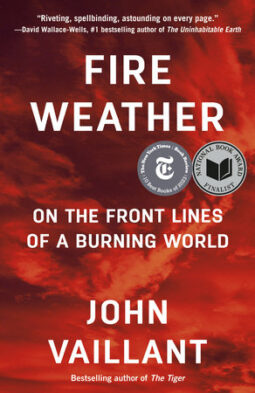 On this week’s show we replay an
On this week’s show we replay an  On this week’s show Beth speaks with computational biologist
On this week’s show Beth speaks with computational biologist 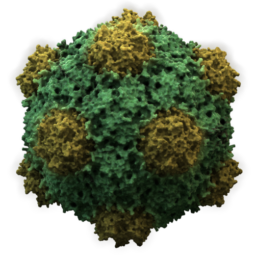 In this week’s science show Beth talks with genome biologist Ed Chuong of CU Boulder’s innovation incubator, the Biofrontiers Institute. Ed takes us for a whirlwind tour of the evolutionary history of these viral invaders of our genome, and some examples of how they can simultaneously be friend and foe. Teaser, did you realize that the genes that allow the formation of the placenta, the organ that nourishes human (and other mammal) fetuses, came from viruses!
In this week’s science show Beth talks with genome biologist Ed Chuong of CU Boulder’s innovation incubator, the Biofrontiers Institute. Ed takes us for a whirlwind tour of the evolutionary history of these viral invaders of our genome, and some examples of how they can simultaneously be friend and foe. Teaser, did you realize that the genes that allow the formation of the placenta, the organ that nourishes human (and other mammal) fetuses, came from viruses!